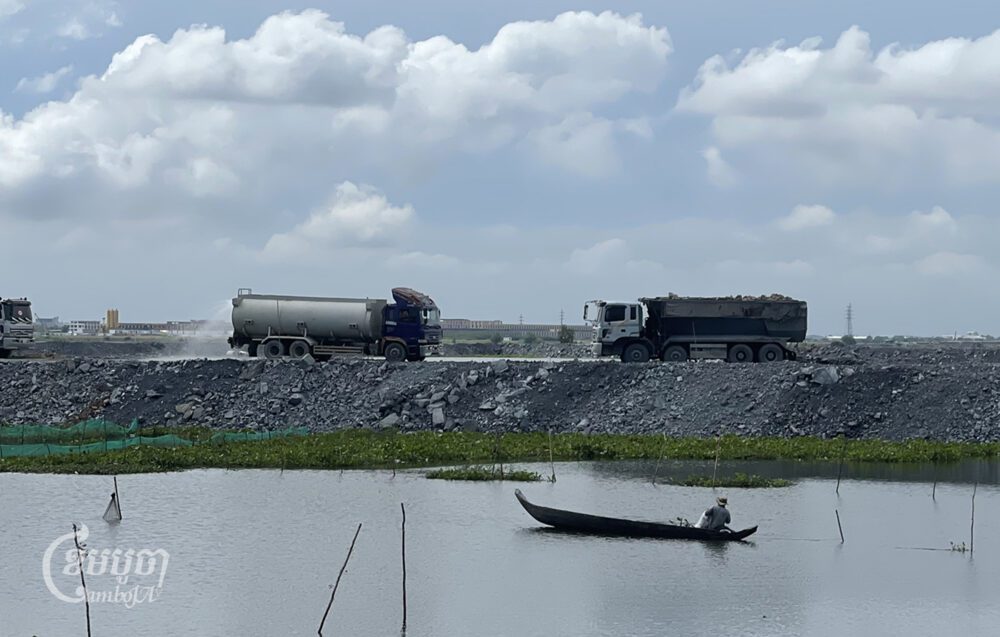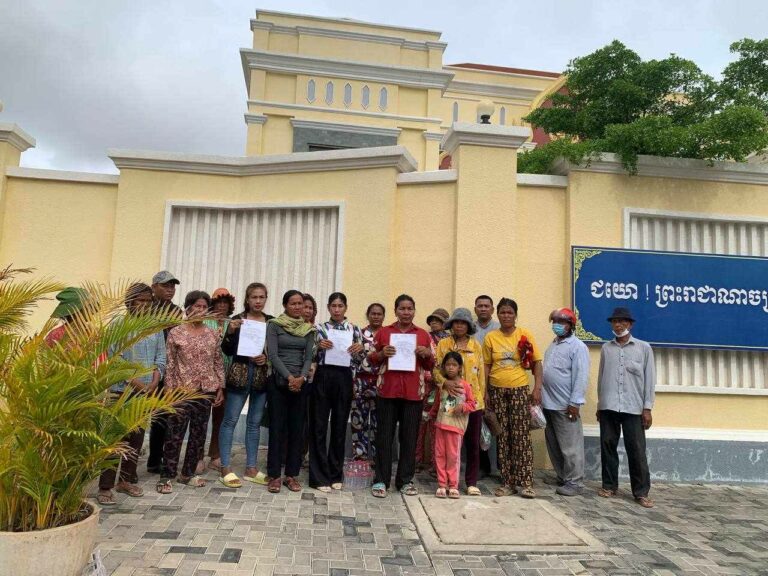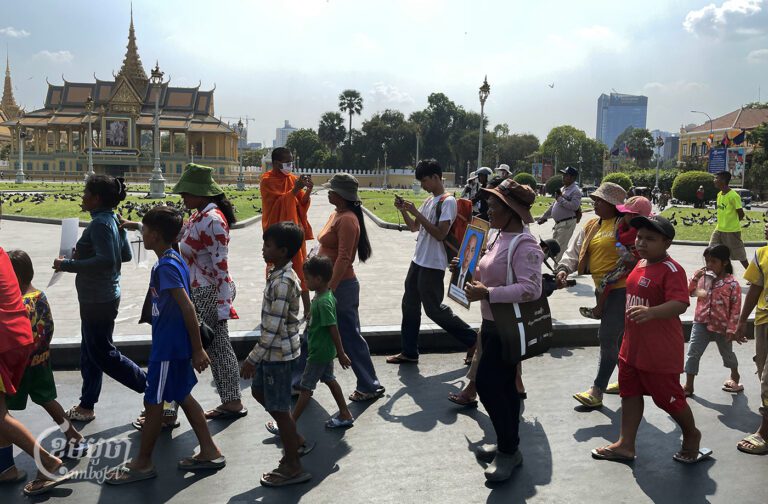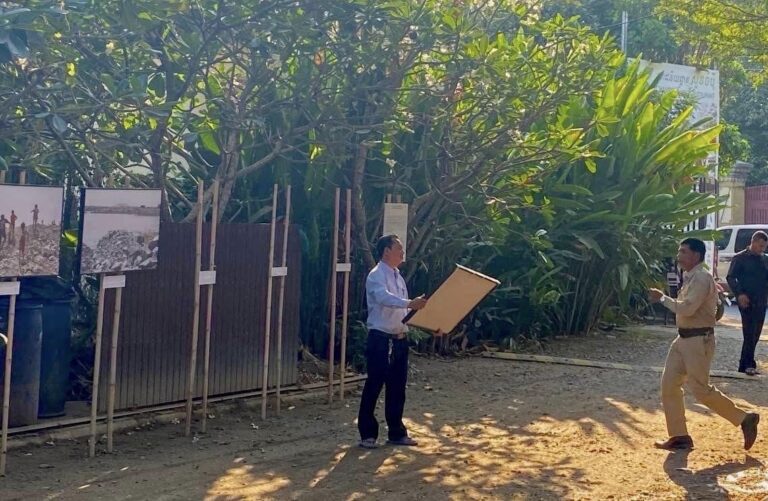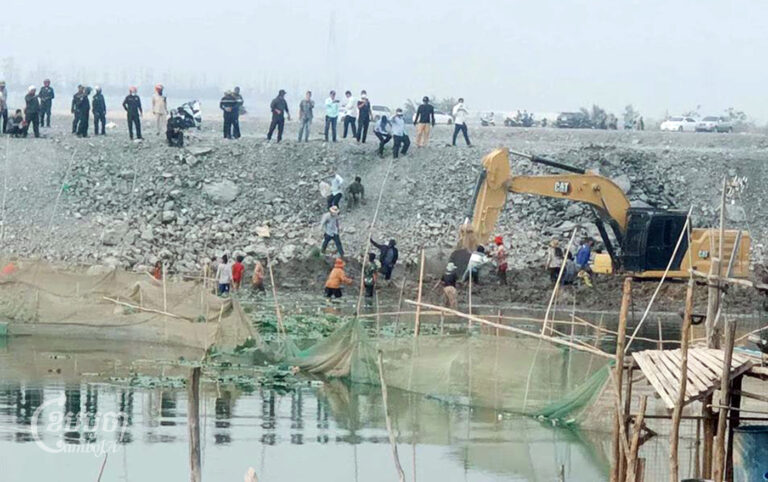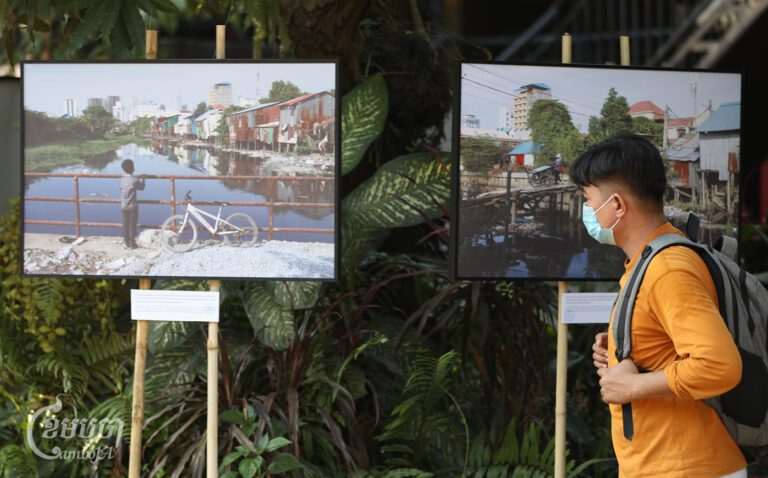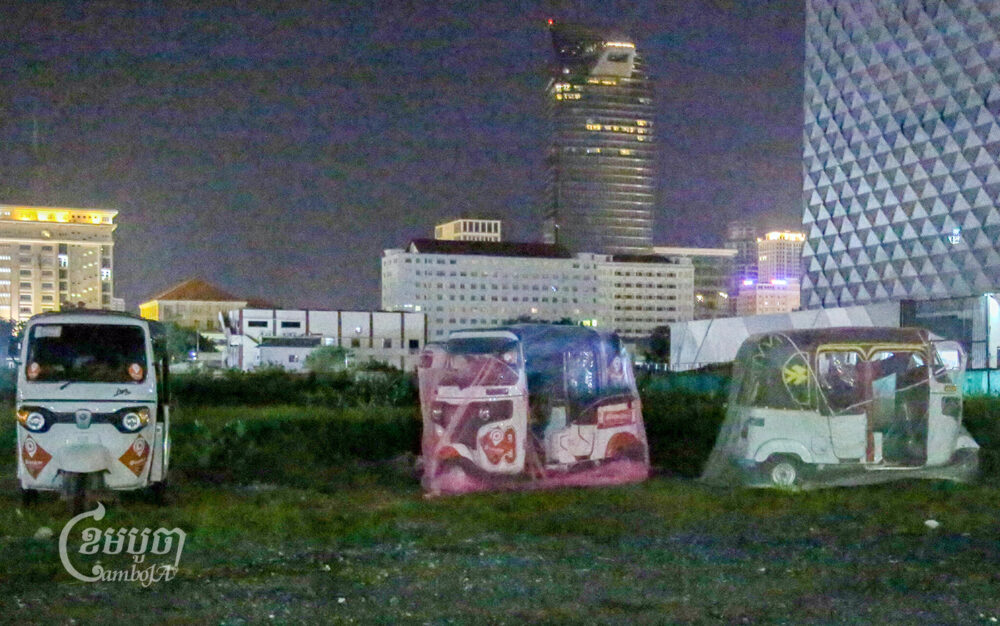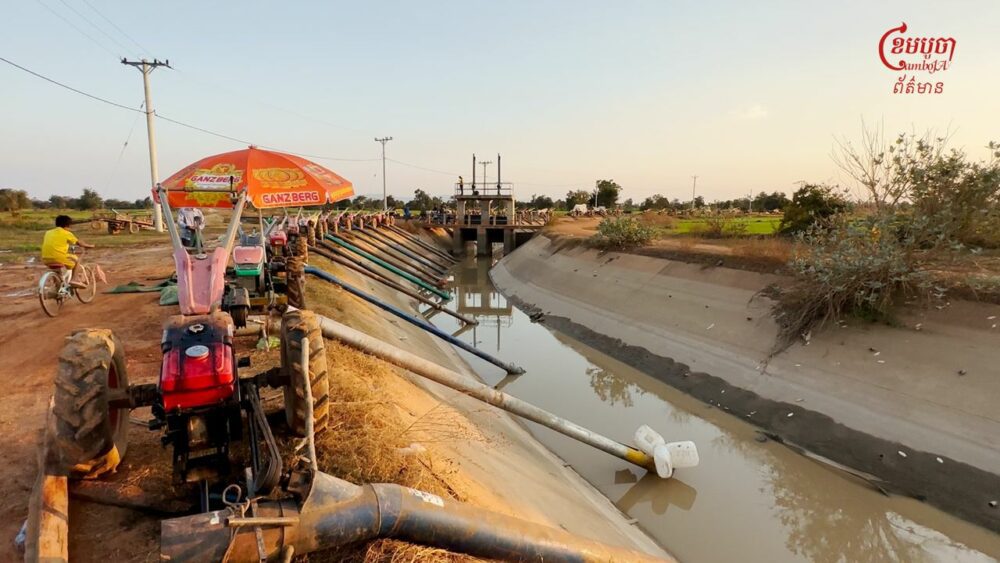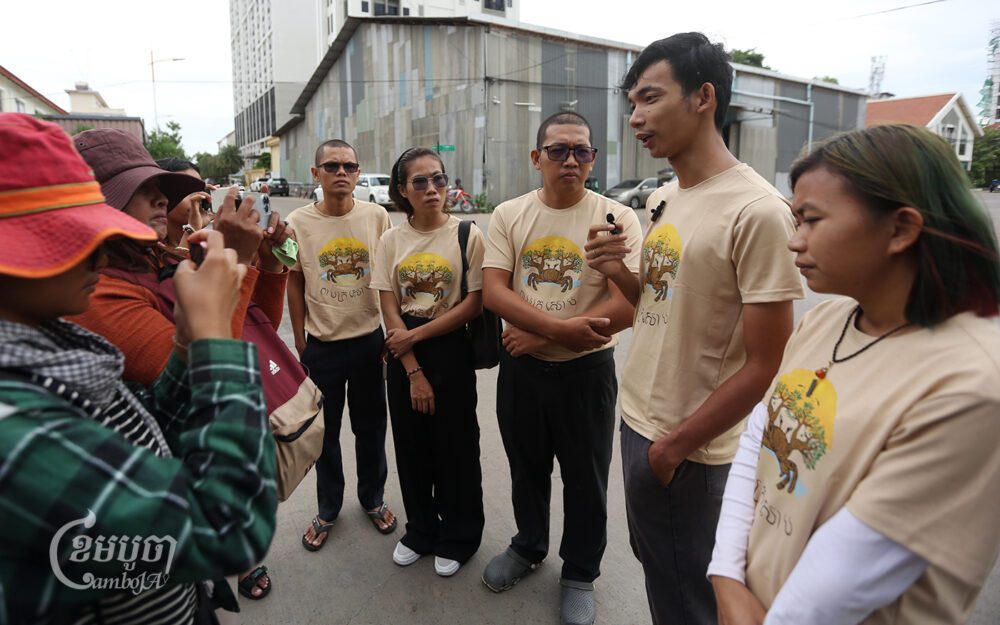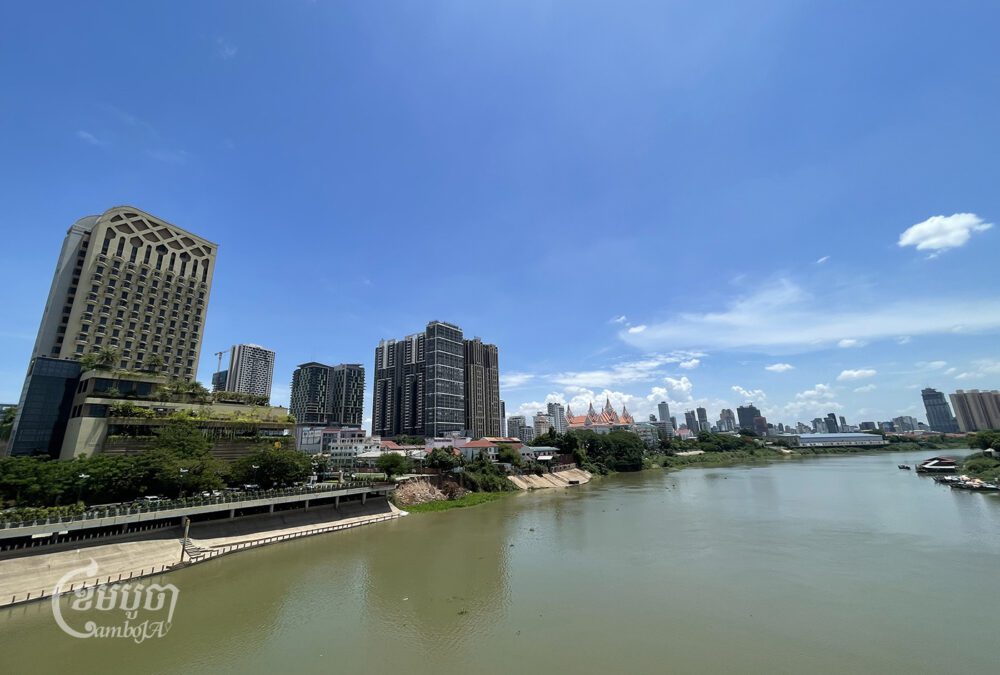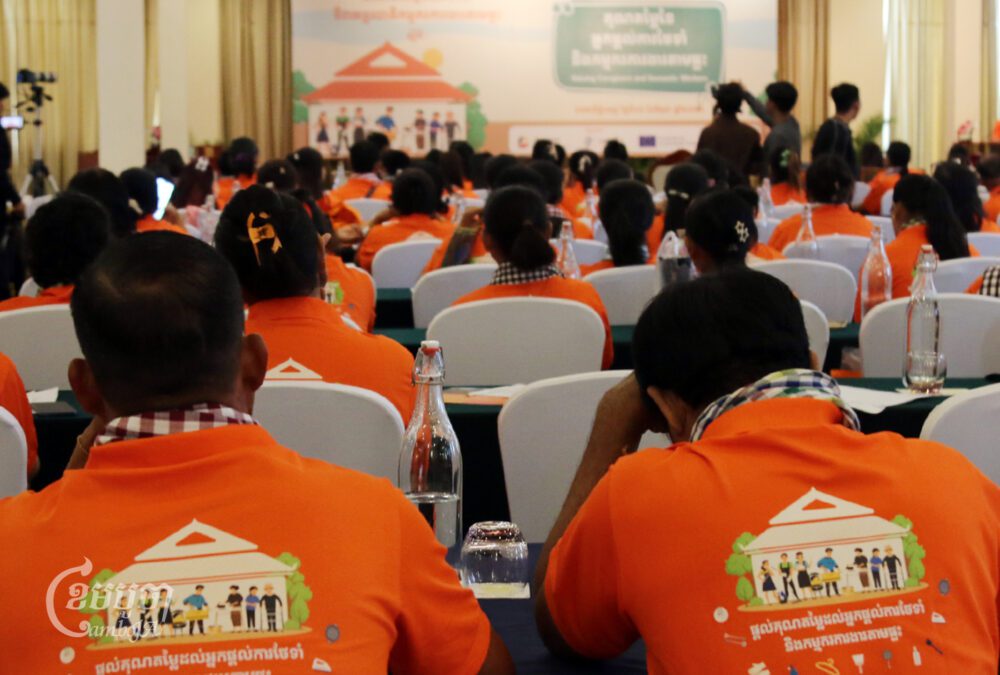Sahmakum Teang Tnaut Organization (STT) has published a report, titled Land Security of Urban Poor Communities, detailing land insecurity issues plaguing urban poor communities in Phnom Penh, who have expressed fear of eviction and inadequate compensation.
From November 2023 to March 2024, the non-governmental organization surveyed 11 urban poor communities, totaling 884 households or 3,798 people, who said they faced threats of eviction as their land had been designated as state or public land.
The report outlined that the actions were in “gross disregard” for national laws, international human rights and recommendations by the United Nations. “A majority of the communities have not received or have been excluded from systematic land registration,” it said.
STT’s Right to the City program manager Seang Muoylay told CamboJA News that the report was aimed at raising community issues for the public and stakeholders, including the authorities, and to enable them to access and provide solutions for communities experiencing land issues.
“Authorities in each of the 11 communities showed different levels of attention to the land issue. Most vulnerable communities don’t have a common solution to their problem,” Muoylay said.
In fact, one of the communities in Samroang Tboung, said they have been living for a long time on a sub-decree land on Boeung Tamok lake covering around 3,000 hectares but the government says it is state land and can be developed. The lake is being gradually filled and will be given to a private developer.
According to the report, the issues are partly caused by a lack of access to information and inclusion in the solution-finding process to development and eviction.
Poor communities have also failed to obtain certain documents that can support their land tenure. When development projects are planned, they are required to leave their land, sometimes without adequate compensation.
Communities are being forced to unite and advocate for government intervention to protect their ancestral lands. Despite facing intimidation, some members have even been taken to court. “It is a desperate fight to preserve the places they once called home.”
Samroang Tboung community resident Soeun Srey Soth said she was a victim of land encroachment on Boeung Tamok, and is currently awaiting a court case.
“As a community representative, I would like to request that a fair solution be found for us, instead of threatening or harming us. Two or three plaintiffs want the lawsuits dropped and want the land we live on to be developed for us,” she said.
Srey Soth and others living in that area have lost their source of income after the natural lake was filled in.
She can earn at least 5,000 to 10,000 riel per day from selling vegetables to support her family but at times, they have no income when there is no sale. She has also borrowed $500 from a moneylender because she could not afford to cover her daily expenses.
Srey Soth has three children, a 15-year-old in ninth grade, a 13-year-old in fourth grader and a nine-year-old third grader.
“I was under a lot of pressure and at the back of the house they started to build the bridge, sometimes I did not sleep for two or three nights and couldn’t eat,” she said, adding that a letter was produced by the authorities informing them to move to another area.
“We were shouting for a solution. They eventually set aside the letter. This is a form of coercion […] a very threatening image of us,” she said.
The Samroang Tboung community in Prek Pnov district lives in a wetland area which was filled in over the years, where a land concession was granted, resulting in the development of a borey. “Borey residents have land titles but the community people don’t,” read the report.
However, in October 2023, the commune authorities asked the community to consider accepting compensation for their land. Some families asked for on-site upgrading, but the local authorities have not responded yet.
Samroang Tboung community is part of Boeung Tamok located in Prek Pnov district’s last remaining natural lakes. The filled lake has been granted on a piecemeal basis to companies and well-connected individuals to develop the lake. At least 2,244 hectares of the lake’s 3,239 hectares have been filled in.
Another resident in the Kao Pi community, Sin Sinuon, agreed with the findings in the research report. She said her community has been facing problems, although they had been living there since 1992, with a community collection since 2013.
From the end of 2022, there has been a claim on the land by a company, but so far there has been no resolution. The company is suing about 35 houses or around 40 families for “taking over the land” measuring four acres.
“We are always receiving threats from companies,” Sinuon said, urging the government to look at the impact on the people in the community because there is infrastructure. The residents have documents and have a right to be on the land, thus the community does not want to be relocated.
“Poor people don’t oppress the rich, only the rich oppress the poor,” she added.
The Kao Pi community has experienced land conflicts with three different companies since 2016. The first was with a gas company in 2016 but they returned the land to the community following a dispute. In 2022, a Chinese company claimed 18 plots and offered a compensation of $5,000 to $10,000 per family.
Currently, a company called “Junk Shop Company” is claiming the land, which belongs to 33 families. Complaints have been submitted by the community to the commune and district authorities but they have not received a response, the report said.
A large number of the households (68.47%) in the community depend on the informal sector to survive, holding jobs as construction workers, scavengers, drivers, street vendors and small shop operators.
Phnom Penh Municipality deputy governor Keut Chhe declined to comment on STT’s report as the report was done without their cooperation and that he did not read it. “This is a report by STT alone, so I can’t comment,” he said.
He asked the CamboJA News reporter to question STT instead, because they wrote a report. “If they have mentioned anything that affects the Phnom Penh City Hall, they will face the law, ” Chhe warned.
Government spokesperson Pen Bona declined to comment, while Land Management, Urban Planning and Construction Ministry spokesperson Seng Lot could not be reached for comment.


